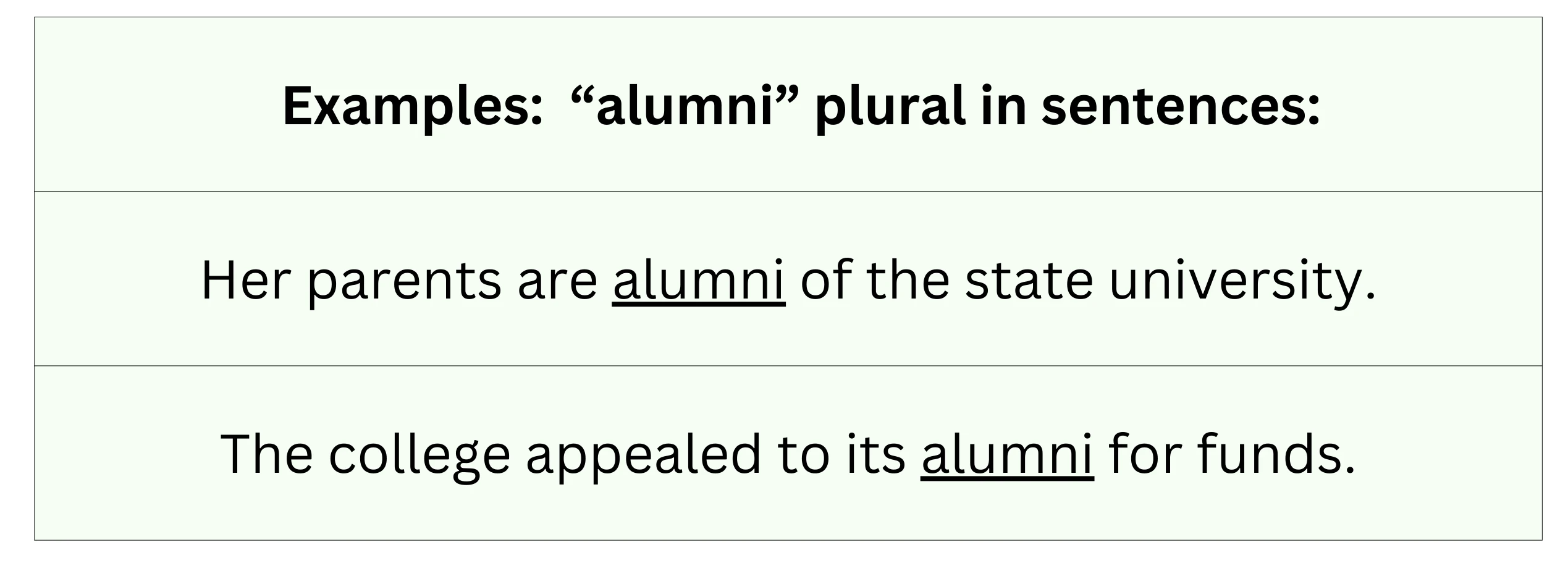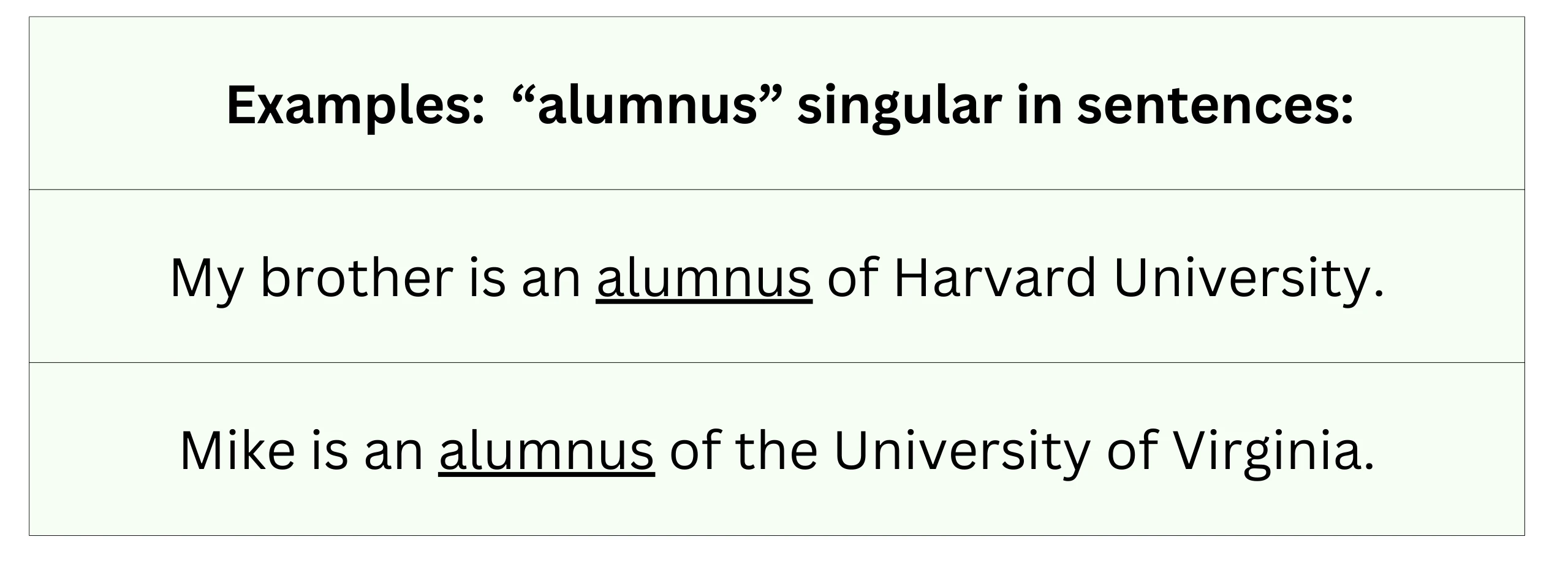Contents
Toggle
Is “alumni” singular or plural?

The Latinate word, alumni, is the plural of alumnus. Alumnus is singular.
What’s the plural of alumnus?

Alumni. If you want to get more into it, the technical Latin plural for male graduate students is alumni. For female graduate students, the technical term is alumnae. When referring to any or all or non-genders (which may or may not be the case at all points in time), stick to alumni.
What’s the definition of alumnus/alumni?
Alumni (plural n.) are graduates of a former school, college or university. Traditionally, in Latin, alumnus (singular n.) referred to a graduate or former pupil student that is male.
Interestingly, the female-gendered counterpart of alumnus, which is alumna, meaning “female pupil or graduate of a school,” was coined nearly two centuries later in the 1860s. Also, accordingly, the plural of former female graduates or students would be alumnae (though this is highly uncommon … in our experience.)
Is alumnus/alumni a regular or irregular noun?
The plural and much more commonly used, alumni, is irregular, since it doesn’t end in the standard plural form of -s or -es. Only nouns that end in -s or -es are regular in English; all other noun endings are considered ‘irregular’, despite the fact that many exist.
What’s curious about alumni, however, is that unlike its Latinate counterparts (read: fungus, cactus, stimulus, syllabus, etc.) alumni stands as one of the few Latinate nouns that have stood the test of time in its original Latin form. For example, funguses is now an accepted, Americanized plural of the original Latin plural, fungi. This is a speculation: likely, funguses came to be accepted overtime because of frequent misuse (that or Noah Webster campaigned for it.)
In the case that you didn’t know, all of us English speaking individuals speak a little bit of Latin (and Greek, German, Dutch, Spanish, and so on.) Alumnus, and its plural half, alumni, are the original Latin forms of the word that have been in use since approximately c. 1640s.
| singular | plural |
| cactus | cacti (or cactuses) |
| octopus | octopi (or octopuses) |
| radius | radi (or radiuses) |
| fungus | fungi (or funguses) |
| alumnus | alumni (or almunuses) |
| syllabus | syllabi (or syllabuses) |
See the chart showing the original Latinate plural, and uses one of the distinct Latin suffixes, i.e., -I: cactus, octopus, alumnus, fungus, hippopotamus (some of these are not originally Latin, but nevertheless use Latin suffixes. Each has conserved their form since its inception (or near inception) as a word/noun.
Examples of “alumnus” (singular) in sentences
1. Rundle College alumnus Aaron Goodarzi can’t say enough about the advantages of independent schooling. (Calgary Herald)
2. Last month the Sonoma Valley High School girls’ basketball and volleyball programs held their second annual, and enjoyable, alumnae doubleheader in Pfeiffer Gym. (Sonoma News)
3. Daniel Webster is just one famous alumnus.
4. In 1978, four stained glass windows were donated by a university alumnus.
5. John has also been honoured by the University of Chicago as a distinguished alumnus in 2002.
Examples of “alumni” (plural) in sentences
1. He was never claimed in his lifetime by either college as one of its alumni.
2. The school has many famous alumni, most of them in sports.
3. Call your alumni office for the same assistance and information.
4. Both my mother and father are alumni of the University of Virginia.
5. James, John and David are Yale alumni, having graduated together in 1997.
Synonyms for alumni/alumnae
- alumnae
- alumnus
- graduate
- grad
- alum
- former student/pupil
What’s the difference between they’re, their, and there?
Sources










